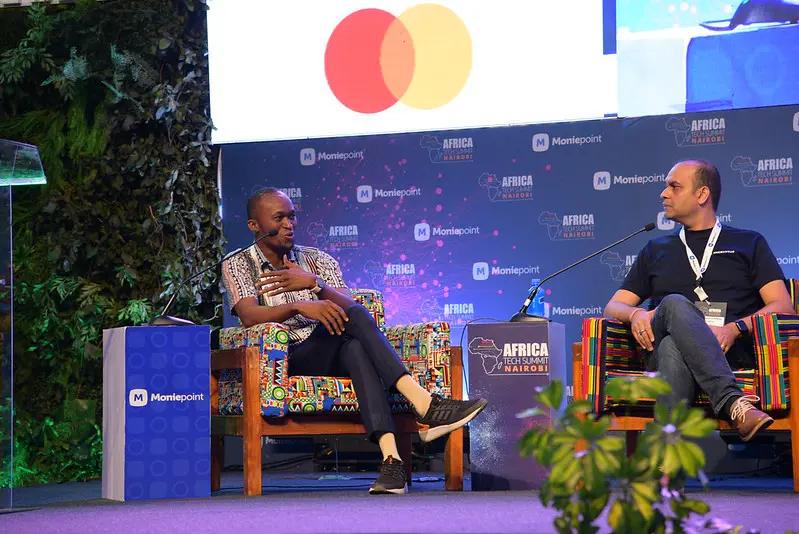
Kenya, often hailed as a hub of technological innovation in Africa, is one of the biggest cryptocurrency markets on the continent. Aptly nicknamed the “Silicon Savannah,” Kenya has carved a unique niche in Africa’s burgeoning Web3 landscape. With a tech-savvy population, a vibrant mobile money ecosystem, and a growing entrepreneurial spirit, it presents a compelling case for widespread Web3 adoption. In this article, we look at the state of crypto in Kenya.
Kenya has a conducive environment for Web3 adoption. 85% of Kenyans own smartphones, which are at the heart of the Web3 evolution, while the dominance of mobile-based payments (mobile money) signals an evolving financial landscape. M-Pesa, the ubiquitous mobile money platform, has fostered a culture of cashless transactions and digital trust, which is crucial for Web3 adoption.
Has Web3 taken over Kenya yet?
Kenya is the biggest cryptocurrency market in East Africa. The country has the highest volume and interest in the subregion and is considered one of the top five cryptocurrency markets on the entire continent. Kenya is behind Nigeria in the list of top African states with the most cryptocurrency ownership provided by Triple-A. In a report about the countries most curious about crypto in 2023, Kenya was ranked 15th globally by CoinGecko. The same cryptocurrency data firm ranked Kenya in the list of countries most interested in cryptocurrency in 2023 on the African continent.
Some key use cases of cryptocurrencies in Kenya are as a store of value, remittances, speculation, and as a tool for making digital content (NFTs). Crypto is more than just an investment or speculative asset in Kenya. It is increasingly being used for practical purposes that benefit both individuals and businesses. One such example is the integration of crypto payments in e-commerce and remittance services. Platforms like BitPesa, now known as AZA Finance, are transforming cross-border transactions, making it possible for businesses to transfer and receive funds more efficiently and at a lower cost than traditional banking methods.
Another company working to change how people send and spend money is Fonbnk. The Kenyan startup allows users to convert their airtime into digital money. The company raised $3.5 million in a seed round led by New York’s New Form Capital in 2022. Beyond its on-ramp feature, select individuals and enterprises can earn extra income through their smartphones by becoming Fonbnk ‘market makers’. These market makers actively trade airtime in Fonbnk’s marketplace and ensure that Fonbnk users can effortlessly transact. The company is already making waves in markets beyond Kenya, like Nigeria.
The trend of Kenyan freelancers and digital nomads embracing cryptocurrencies like Bitcoin and Ethereum is growing. This is because they can receive payments from international clients while circumventing the high fees and lengthy processing times associated with conventional banking systems.
Cryptocurrencies are becoming a popular choice for unbanked or underbanked populations as they offer access to financial services through peer-to-peer lending and microfinance. One such example is Grassroots Economics, which utilizes blockchain technology to create community inclusion currencies. This empowers local communities by improving trade and providing a buffer against economic shocks. These applications demonstrate the potential of cryptocurrencies in addressing financial and socio-economic challenges in Kenya.
In Kenya, people use several popular cryptocurrency platforms to exchange their shillings for crypto and vice versa. These platforms include Binance, Paxful, YellowCard, and LocalBitcoins (which is now defunct). Among these, Binance has emerged as the leader in peer-to-peer trading. Kenyan traders have the option to choose from multiple payment methods, such as mobile money (MPesa) and bank transfers. Before Binance became dominant in the P2P market, Paxful and LocalBitcoins were leading the pack. Paxful’s main value proposition was the availability of multiple payment options, which differs for platforms like Binance and YellowCard. A major component of the popular exchanges in Kenya is their emphasis on educational programs aimed at university students.
More Web3 companies continue to pop up in East Africa. In 2023, Kenyan-based Web3 firms DADA and Kotani Pay raised money. DADA, the Bitcoin education hub focused on women, raised $10,000 BTC from Samara Asset Group and crypto on-ramp Kotani Pay closed a $2 million pre-seed funding round.
Kenyan regulators and crypto
The regulatory landscape in Kenya seems to be evolving from one that was very negative towards crypto to one that is more welcoming. The country’s parliament was at the centre of discussions about cryptocurrency regulations and major projects in 2023.
The Kenyan cryptocurrency community has been opposing the Capital Markets (Amendment) Bill 2023. The bill aims to modify the tax code, categorize crypto assets as securities, and levy a capital gains tax on them. In response, the Blockchain Association of Kenya (BAK) has filed a complaint against the bill with the High Court of Kenya.
The recent conflict has brought about some encouraging progress. The National Assembly’s Departmental Committee on Finance and National Planning has instructed the Blockchain Association of Kenya to prepare a preliminary version of a bill that could be used to regulate virtual asset service providers. This move is a milestone, as it will put Kenya at the forefront of countries where industry representatives are leading the creation of a regulatory structure for digital currencies. BAK is currently developing the framework.
Kenya’s National Assembly has been focused on matters related to WorldCoin in addition to discussing the Capital Markets (Amendment) Bill 2023. WorldCoin has gained significant attention in Kenya, raising concerns due to the nature of the project. A parliamentary committee was set up to investigate the project’s operations, and they have recommended that regulators shut down WorldCoin’s operations in the country. The committee cited privacy concerns and reported that WorldCoin did not comply with orders to halt operations in May 2023.
In 2024, the Kenyan cryptocurrency landscape is poised to see more developments as interest and adoption increase. Discover the latest developments in the African cryptocurrency industry at the 2024 Africa Tech Summit in Nairobi.
